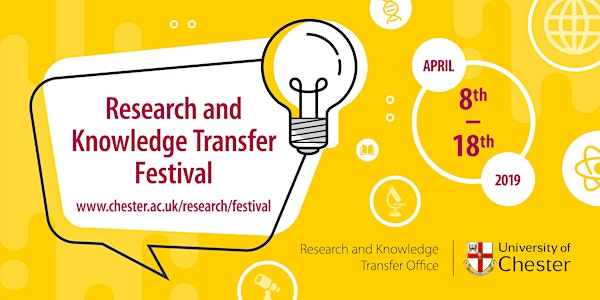
How Serious Games and Virtual Reality Can Strengthen Your Research
Date and time
Location
Hollybank 002
University of Chester Parkgate Road Campus Chester CH1 4BJ United KingdomDescription
This multi-paper session by the department of Computer Science will explore how modern concepts, technologies and applications such as augmented, virtual or mixed reality, design sprints and methodologies, and games with serious applications can improve your existing and future research or open it to new collaborations.
Digital Heritage as an example of cross-faculty multi-disciplinary research- Dr Helen Southall
Digital technologies such as virtual and augmented reality (VR & AR) and serious games have great potential for enhancing both academic research and public engagement with heritage sites and historical stories. Effective realisation of this potential requires collaboration across organisational and disciplinary boundaries, which can be challenging, but also offers many positive side-effects, beyond the research outputs themselves. I will describe work on digital heritage which has involved collaboration across four faculties (so far). This will also be an opportunity to discuss approaches which have helped in other disciplines and locations
XR Technologies Review, Present and Future- Lee Beever
This talk will outline and discuss the pros and cons of currently available and future XR (virtual reality, mixed reality, augmented reality) technologies in the context of cross discipline research
The Impact of Virtual Reality on Assisting Activities of Daily Living- Prof. Nigel John
This talk will provide an update on several research projects currently being carried out by the Medical Graphics Group within the Department of Computer Science at the University of Chester. We will describe how we are using VR to help with the cognitive rehabilitation of stroke patients, a driving simulator for powered wheelchair users, and more
Solving software problems with design sprints- Andrew Davies
Currently, there are many approaches to software design which facilitate user involvement and adequate software testing (including user-centred, lean, and agile approaches) but more recently, we’ve seen contemporary problem solving techniques emerge such as the 5-day design sprint, made popular by Jake Knapp and the Google Ventures team, which can be used to galvanise software teams and create more effective software products. The design sprint process encourages small multidisciplinary teams (including technical and non-technical staff) from across an organisation to work collaboratively on answering key questions through design, prototyping, and testing ideas with customers.
However, the original 5-day duration remains a barrier to adoption for organisations, and there is a need to compress and refine this process to offer a more manageable and less intimidating schedule, especially for less complex problems. To address this barrier, the Department of Computer Science and Business School, University of Chester, have been looking at ways to condense the process and apply a shortened version to software development projects
Why So Serious ... Games?- Dr Serban Pop
This entertaining presentation will explore the details and knowledge of the modern concepts of game-based learning and serious games focusing on the development pipeline from the early stage of drawing ideas until the final product. Example of serious games projects mixing computer science and sports or digital humanities will be presented